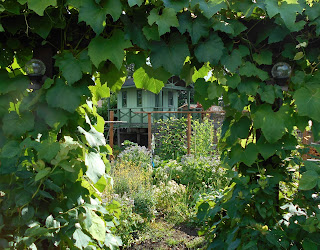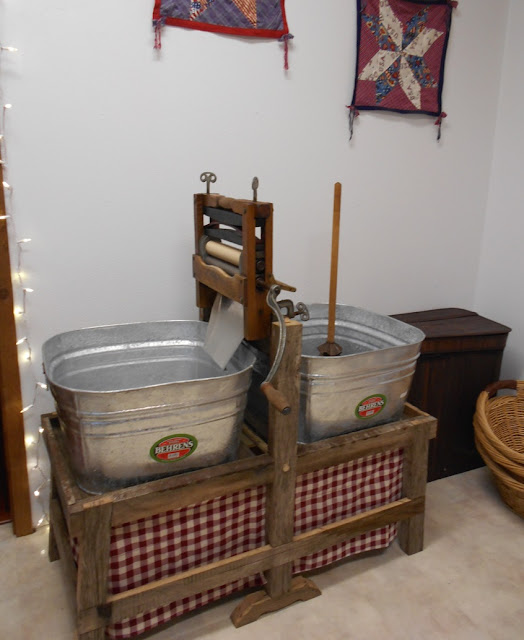Tips For the New Gardener
Create a gardening journal. You will find this to be invaluable in the following years.
In this journal, draw a map each year of what you planted and where. Keep track in weekly or even daily notes of exactly what day you started each item from seed and your method of doing so, of when you transplanted them (or store bought starts) into the ground or bigger pots, if you planted outdoors or in a greenhouse.
Also keep track of when you see your seedlings first pop up and of any troubles you have along the way (leggy plants, birds pulling up the new shoots, slugs, et cetera).
It is a good idea when you are a new gardener to plant seeds at different times through the season and in different areas of your property to find out what time works best for your area. You will also find some plants, though many will tell you "full sun", may like mostly shade better and vice-versa. Example: I have a rhubarb plant that does NOT like full sun at all and actually thrives best in full shade. Even though everywhere I read online or people who grow rhubarb will tell me it grows best in full sun.
Reading about gardening online, though a great place to start, is simply not enough. You will find your own micro climate and soil type can vary greatly even in those living in the same city. What works great for their neighbor may not work great for you.
The only right way to grow your garden is what works for you on your own property, not what works for someone else, and the best way to find this out is through experience, just as I have been doing.
Expect failures. They WILL happen. This is part of the education and is far less expensive than taking a class and will stick in your memory better as you are actually doing it, not just reading about it and reciting.
Do not forget to write everything in your journal. What failed, what succeeded, and so on. I promise you, you will realize next year just how important that information will be when you go to start your 2017 garden.
O yes, and one more thing, take LOTS of photos along the way, this is another great way to keep track of how your garden is growing. Make sure the date stamp is set on your camera so when you go back over your photos next year, you can see what time in the season it is that your plants were at their different stages of development. Keep your gardening photos in folders on your computer for each year. Another great way to organize and see how things have changed as you progress in your gardening abilities.



Hello, Heidi! I live in Florence, KY in an apartment, and tried gardening here this year. I won some seeds (pumpkin, zucchini, watermelon and cucumber)from He Provides Homestead (Jerri and Chico Goodpaster) in a Giveaway they held in May. I planted them in my apartment garden plot that is about 8x8 in size. I'd never grown zucchini, pumpkin, cucumbers or squash before and didn't realize how much space they require, especially the zucchini and pumpkin. I'd also planted 4 varieties of heirloom tomato plants and two other varieties. Also planted were okra, rosemary, cilantro, watermelon, honeydew melon, bell pepper and morning glories and moonflowers. My garden took a while to get started because it had sat under plastic and rocks for years. I fed it through the end of last year and this year before planting to help the soil be healthy. When the zucchini took off, the foliage was everywhere and thick. I loved how lush and green and beautiful it was and my first zucchini grew to nearly 5 lbs before I picked it. A few watermelon and pumpkin were starting to grow too, and lots of tomatoes of the plain variety. Then we had lots of rain. Within two weeks my garden went from being very lush and beautiful to moldy. My heart was saddened. Nothing I did helped and even pruning back molded leaves made a difference since the mold was in the soil and base of the plants. I was also experiencing blossom end rot so that none of the starts of pumpkins, watermelons, or cucumbers actually grew to fruition. Though the leaves of the zucchini were moldy and dying off, I'd still get some zukes, but not many. I learned from MIgardener that I should have pruned off any overlapping leaves so that the rainwater would have had an easier time evaporating, and, the bees would have been able to fertilize my blooms so the veggies would have grown.
ReplyDeleteRecording by way of pics, videos and note taking to document everything is great advice! Thank you!
Have a blessed day!
As sad as it may all seem what you went through, the wonderful thing is it was a learning experience that has MUCH value with very little cost involved, unlike taking a college course that does not give any experience and the cost is great. Thank you for sharing you experience! <3
DeleteI was diagnosed as HEPATITIS B carrier in 2013 with fibrosis of the
ReplyDeleteliver already present. I started on antiviral medications which
reduced the viral load initially. After a couple of years the virus
became resistant. I started on HEPATITIS B Herbal treatment from
ULTIMATE LIFE CLINIC (www.ultimatelifeclinic.com) in March, 2020. Their
treatment totally reversed the virus. I did another blood test after
the 6 months long treatment and tested negative to the virus. Amazing
treatment! This treatment is a breakthrough for all HBV carriers.
Living with Parkinson’s is a daily struggle physically and emotionally. My husband was diagnosed in 2013, and over time, conventional treatments lost their effectiveness. His symptoms worsened, and the sense of hopelessness grew.In March 2020, as a last resort, he turned to NaturePath Herbal Clinic. After completing their six-month natural program, the changes were remarkable his tremors eased, stiffness reduced, and his energy returned. For the first time in years, he’s not just coping he’s truly thriving.If you’re searching for a natural alternative, this may be the hope you've been waiting for. www.naturepathherbalclinic.com info@naturepathherbalclinic.com
ReplyDelete